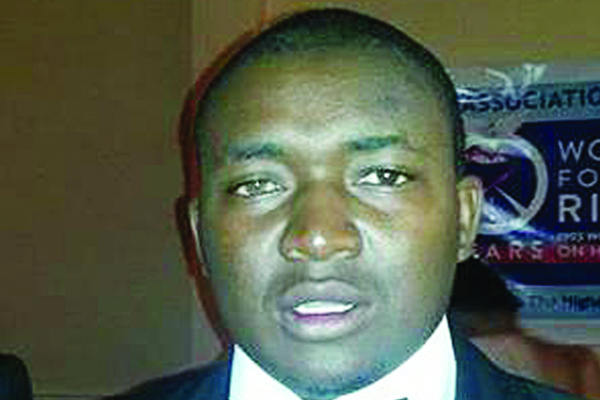
Medical doctors in the country say they will be “putting health on the electoral agenda” to carry forward the “Health Professionals Can Make a Difference” campaign.
BY GARIKAI TUNHIRA
The campaign, spearheaded by the Zimbabwe Association of Doctors for Human Rights (ZADHR), will see activities taking place in Harare and Bulawayo, with a view to create spaces for health policy proposal discussions between political parties, health professionals and the general public.
The health rights defenders will also mobilise and motivate the health sector personnel to participate in the election.
ZADHR executive director Calvin Fambirai told NewsDay that the electoral period provides Zimbabwe an opportunity to discuss and pursue policy alternatives to rescue the health sector from “this abyss.”
He said such dialogue would motivate the more than 100 000 health personnel in both the private and public sector to participate in elections.
“This will be achieved through engaging health personnel in their professional spaces and also utilise in-profession communication channels to reach out to various members of the sector,” he said.
“By creating spaces to interrogate political parties, the initiative will inadvertently be a call to action and future accountability to the incoming government.
- Chamisa under fire over US$120K donation
- Mavhunga puts DeMbare into Chibuku quarterfinals
- Pension funds bet on Cabora Bassa oilfields
- Councils defy govt fire tender directive
Keep Reading
“Further, since the sector has largely been donor-dependent, the interface sessions will also seek to examine political parties on how they intend to institute local and sustainable financing models for the health sector as the country moves towards Universal Health Coverage and meeting the 15% Abuja Declaration target.”
Fambirai said to this end, Zimbabweans, the donor community, civil society and the health professionals would be able to monitor compliance with electoral commitments from the incoming government.
He added that Zimbabwe had a poor public health delivery system due to chronic under-funding.
“Shortage of basic drugs, dilapidated equipment, low morale and allegations of negligence severely undercut citizen’s access to healthcare, despite constitutional provisions compelling the government to provide this basic right to its citizens,” Fambirai said.
“The majority of the poor and the vulnerable women and children are the worst affected as they have no capacity to turn to private healthcare delivery solutions.”











